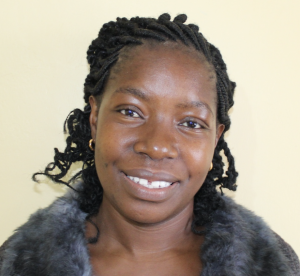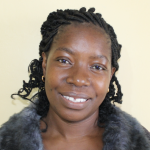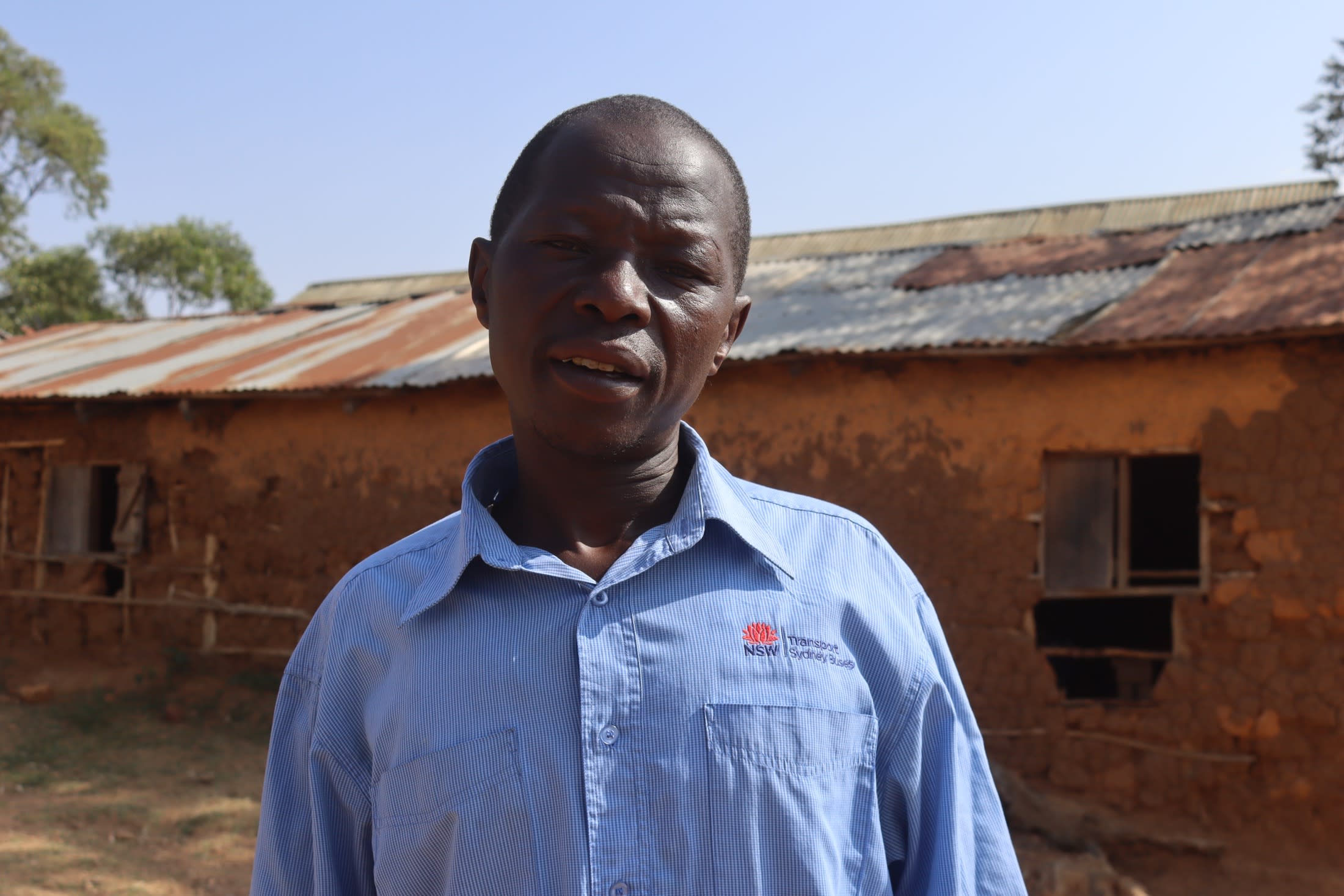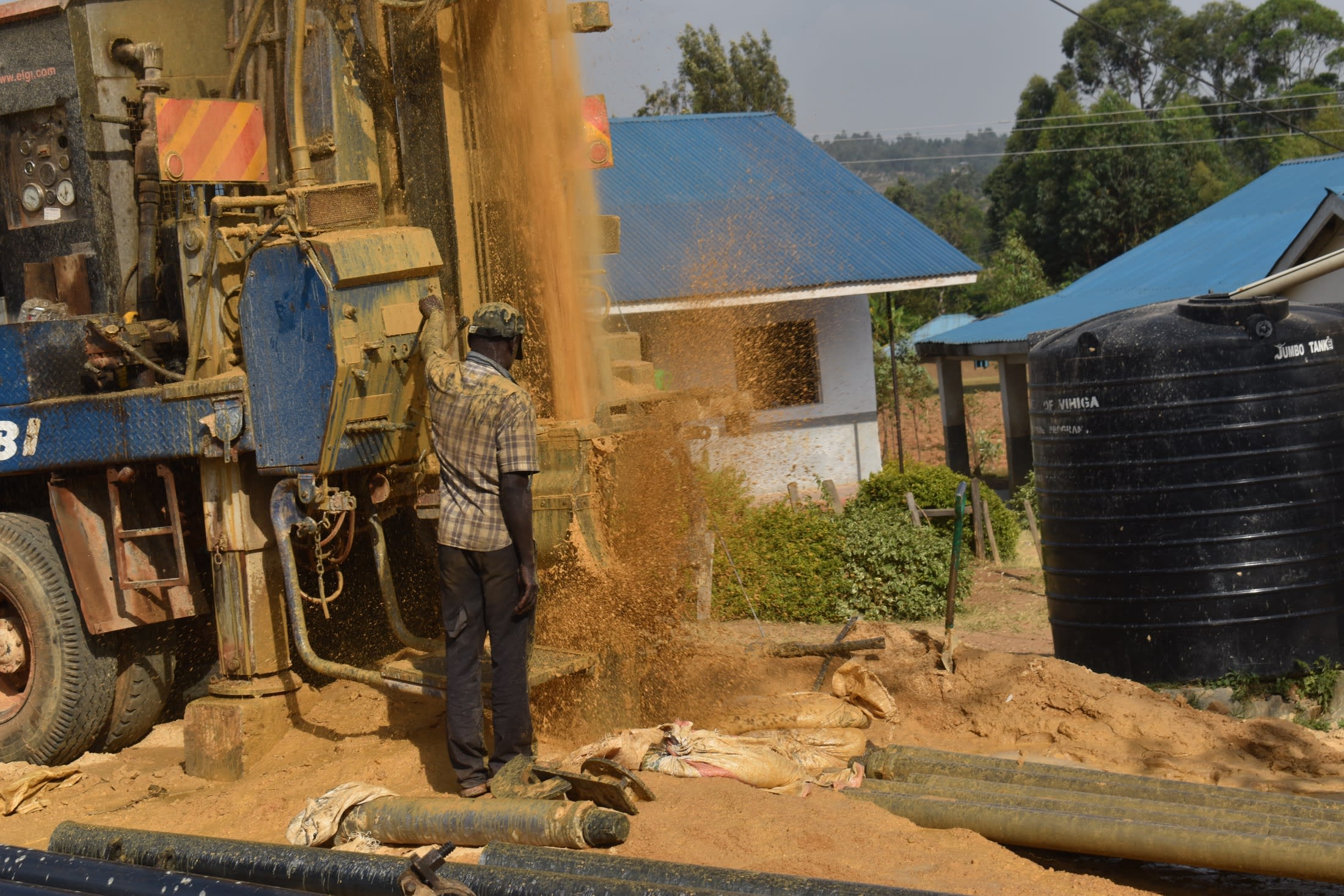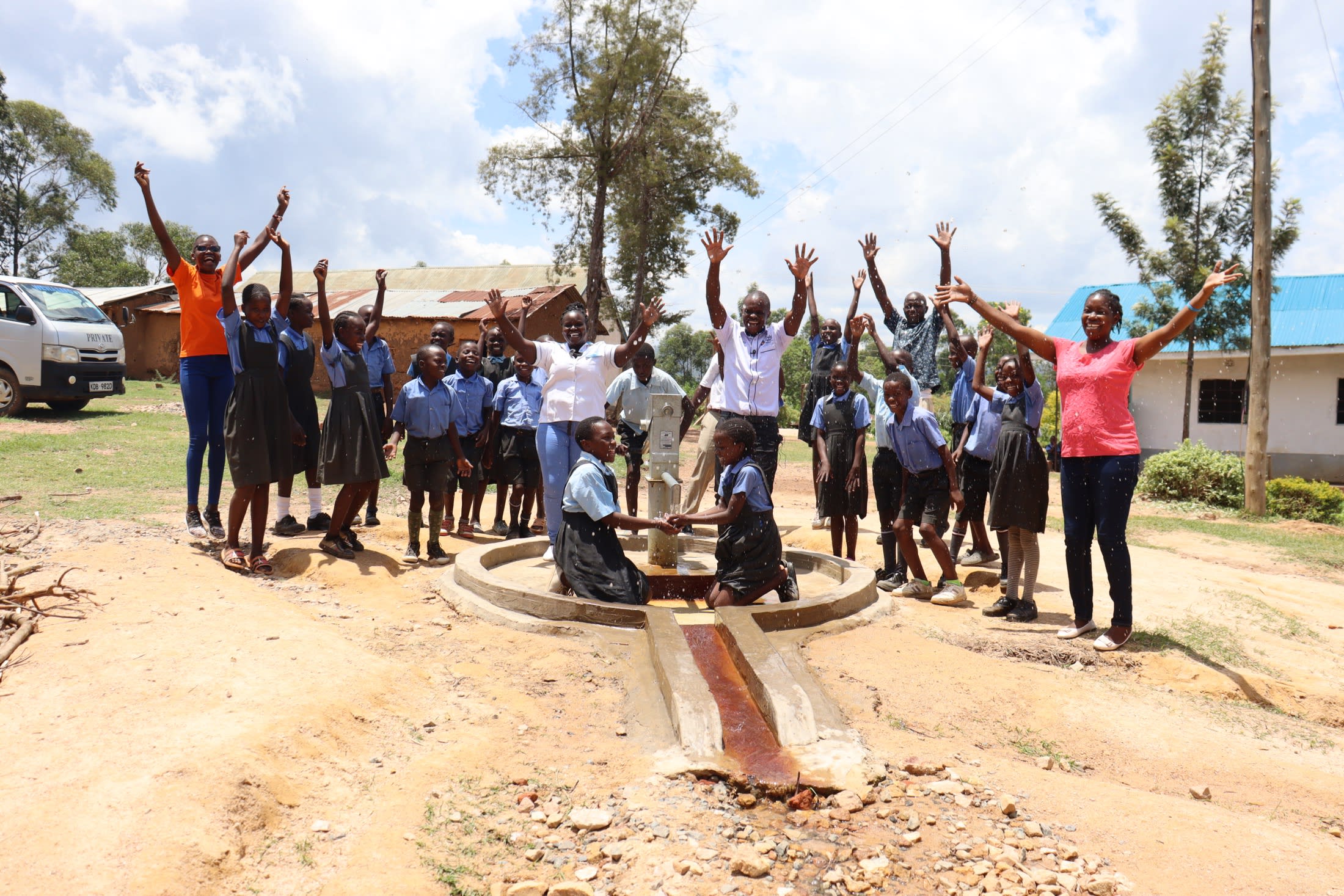Luther Primary School has a large population of 347 students and 14 teachers, and without access to sufficient water, they struggle every single day.
The school has three plastic rainwater harvesting tanks totaling 18,000 liters that collect water during rainy seasons to store, but the water collected is not enough to cater to the entire school population. When the water from the tanks is exhausted, students bring water from home instead or skip their lessons to go fetch water from the river during the school day.
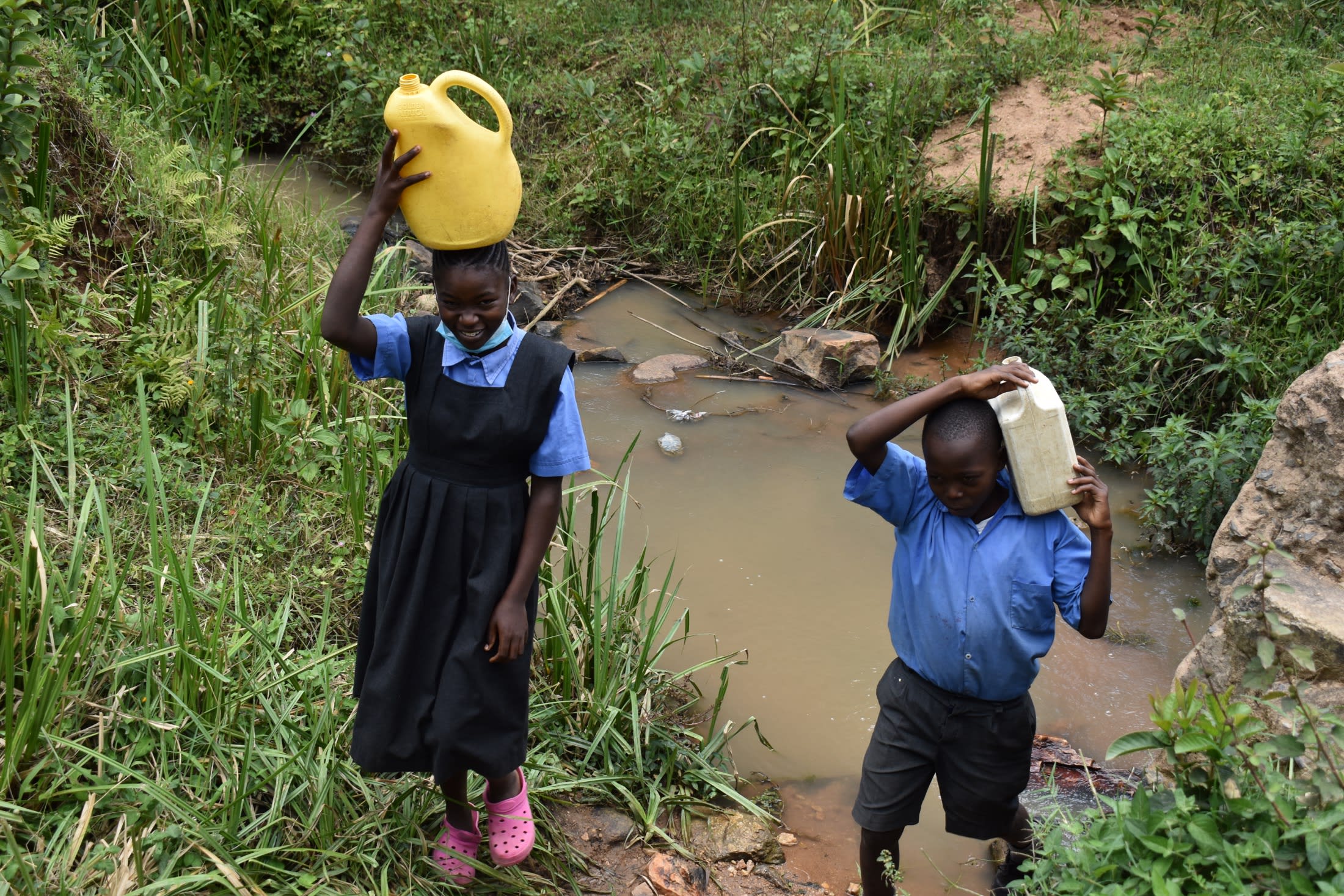
"Students waste their precious classtime as they go to look for water," said 43-year-old teacher Julius Ogole, shown below near the river bank. "This has led to poor performance in their academics. We teachers are forced to walk to the river with the students so that we can offer security while outside the school compound. Students are faced with the danger of being knocked down by motorbikes on the road as they go for water and walk back."
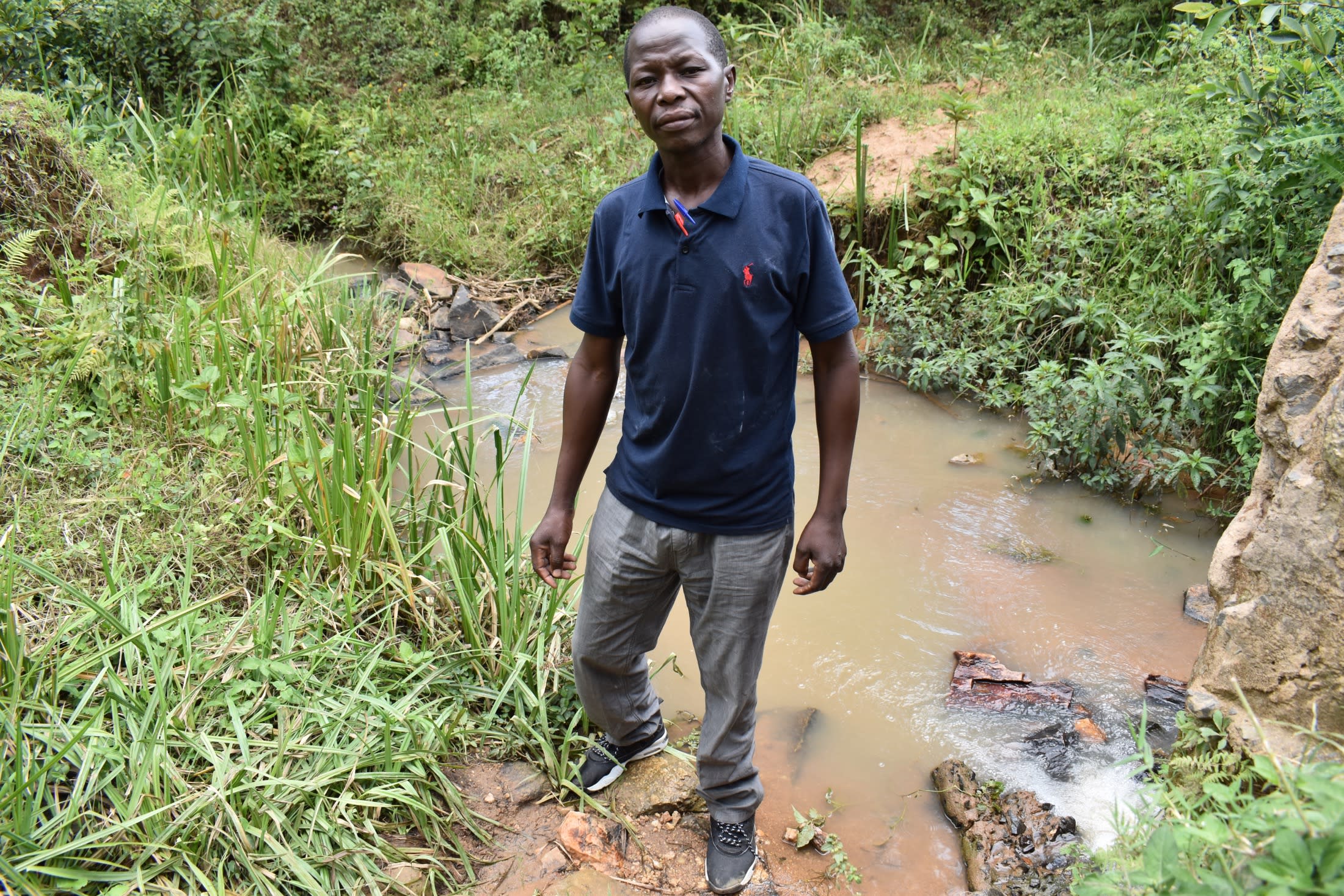
Students tire as they carry water to school, which in turn impacts their concentration in class. And the lost time is never recovered, leading to poor academic experiences and performance in the national examinations.
Compounding the issue of absenteeism are waterborne diseases. The river water is prone to contamination from the surrounding area farms, animals, and even human feces, causing students to suffer from water-related illnesses like typhoid, diarrhea, and stomach pains.
"The school lacks a reliable water source, which forces us to go to the river to fetch water when [the] need arises," said 13-year-old Prudence C (shown below). "Water from the three harvesting tanks, when available, is used for drinking and cooking but it is depleted after a few days. We waste a lot of time looking for water instead of studying."
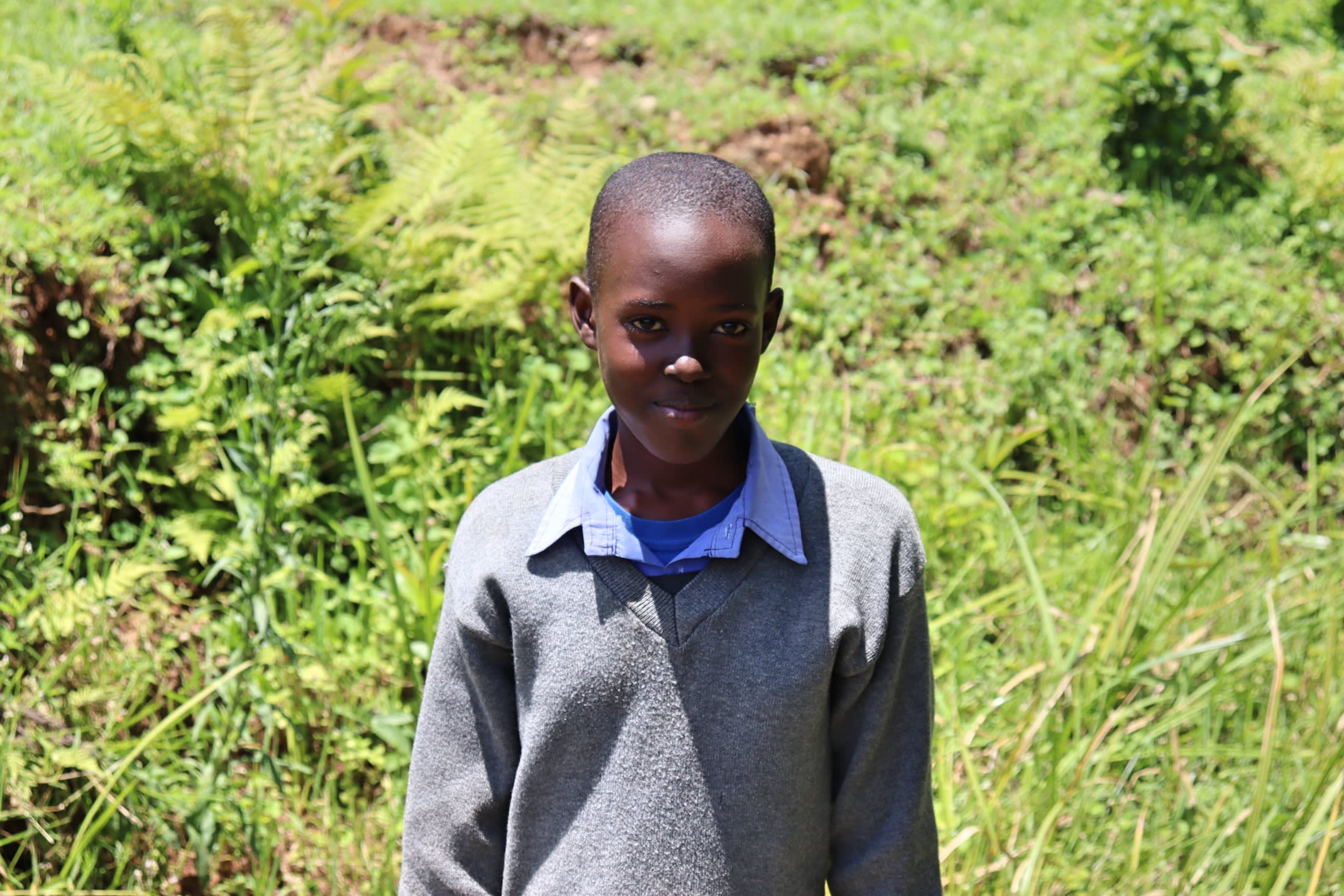
Hopefully, with a borehole of their own, students and staff will be able to access reliable, safe, and clean water.
What We Can Do:
New Well
We conducted a hydrogeological survey at this school and the results indicated the water table beneath it is an ideal candidate for a borehole well. Due to a borehole well's unique ability to tap into a safe, year-round water column, it will be poised to serve all of the water needs for this school's large population, even through the dry months.
The school will help collect the needed construction materials such as sand, rocks, and water for mixing cement. They will also provide housing and meals for the work team, in addition to providing local laborers. We will complement their materials by providing an expert team of artisans and drilling professionals, tools, hardware, and the hand-pump. Once finished, water from the well will then be used by the school’s students and staff for drinking, handwashing, cooking, cleaning, and much more.
Handwashing Stations
The student health club will oversee the two new handwashing stations we will provide, and make sure they are kept clean and in working condition. The club leaders will fill the handwashing stations with water daily and make sure they are always supplied with a cleaning agent such as soap or ash.
VIP Latrines
We will construct two triple-door latrine blocks using local materials that the school will help gather. Three doors will serve the girls and three doors will serve the boys. All of these new latrines will have cement floors that are designed to be easy to use and to clean. And with a borehole right on school property, there should be enough water to keep them clean.
Training on Health, Hygiene, COVID-19, and More
We will hold a one-day intensive training session with students, teachers, and parents. This training will cover a wide range of topics including COVID-19 symptoms, transmission routes, and prevention; personal and environmental hygiene; and the operation and maintenance of the borehole, latrines, and handwashing stations. There will be a special emphasis on handwashing.
Our team of facilitators will use a variety of methods to train, including participatory hygiene and sanitation transformation, and asset-based community development. We will initiate a student health club, which will prepare students to lead other pupils into healthy habits at school and at home. We will also lead lectures, group discussions, and provide illustrative handouts to teach health topics and ways to promote good hygiene practices within the school including handwashing and water treatment. We will then conduct a series of follow-up trainings before transitioning to our regularly scheduled support visits throughout the year.
We and the school strongly believe that all of these components will work together to improve standards at this school, which will help lead to better student academic performance and will help unlock the opportunity for these students to live better, healthier lives.

 Borehole Well and Hand Pump
Borehole Well and Hand Pump
 Rehabilitation Project
Rehabilitation Project












